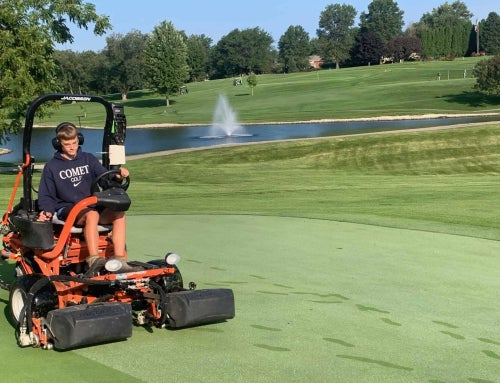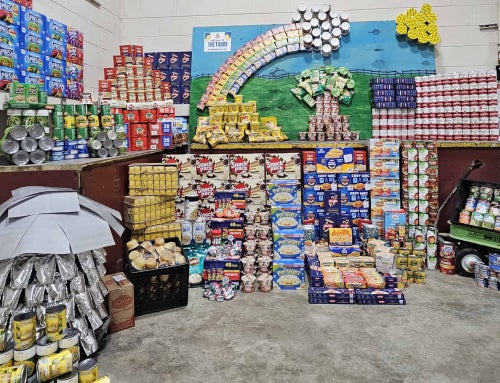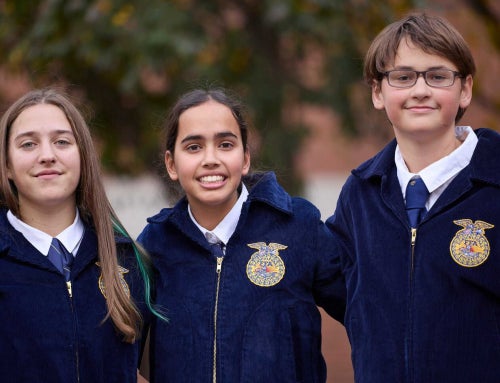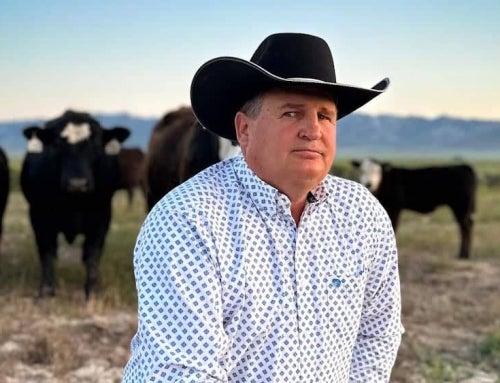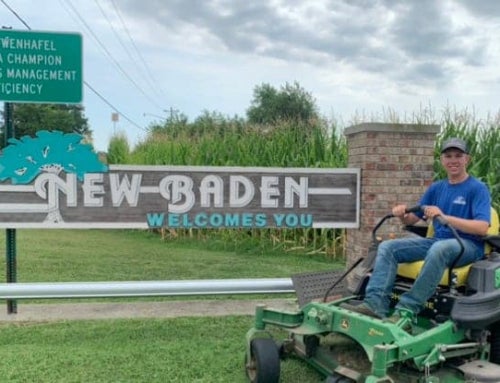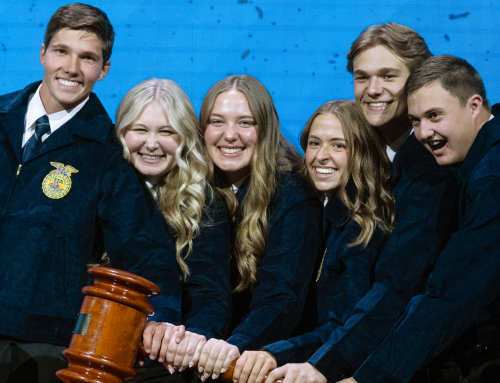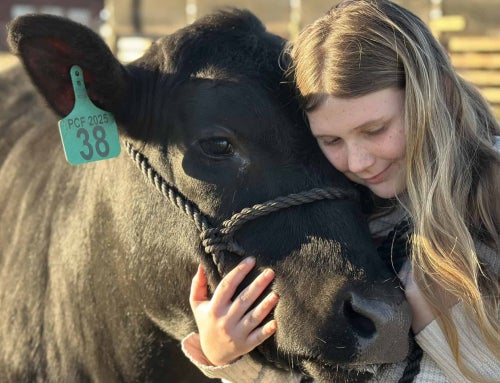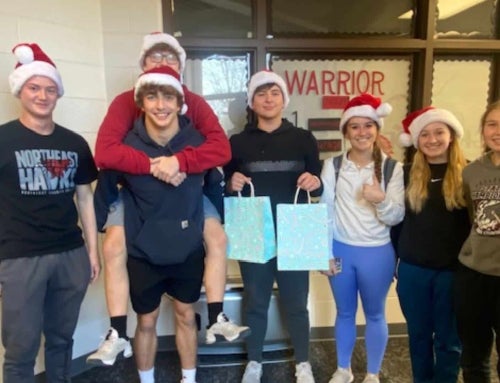When chocolate magnate Milton S. Hershey and his wife, Catherine, founded Milton Hershey School (MHS) in Hershey, Penn., in 1909, their goal was to provide a tuition-free, private education for students from low-income families. Their school’s commitment to providing a rigorous academic environment that includes education in agriculture and vocational disciplines to “transform lives” remains unchanged.
“Milton Hershey did give a lot to start the school, and he wanted it to be agriculture-focused,” says Logan Keister, an MHS senior and the MHS FFA Chapter’s secretary. “The fact we are still carrying on the tradition of what he set in stone many, many generations ago feels like we’re doing great work and trying to do our best to keep it alive.”
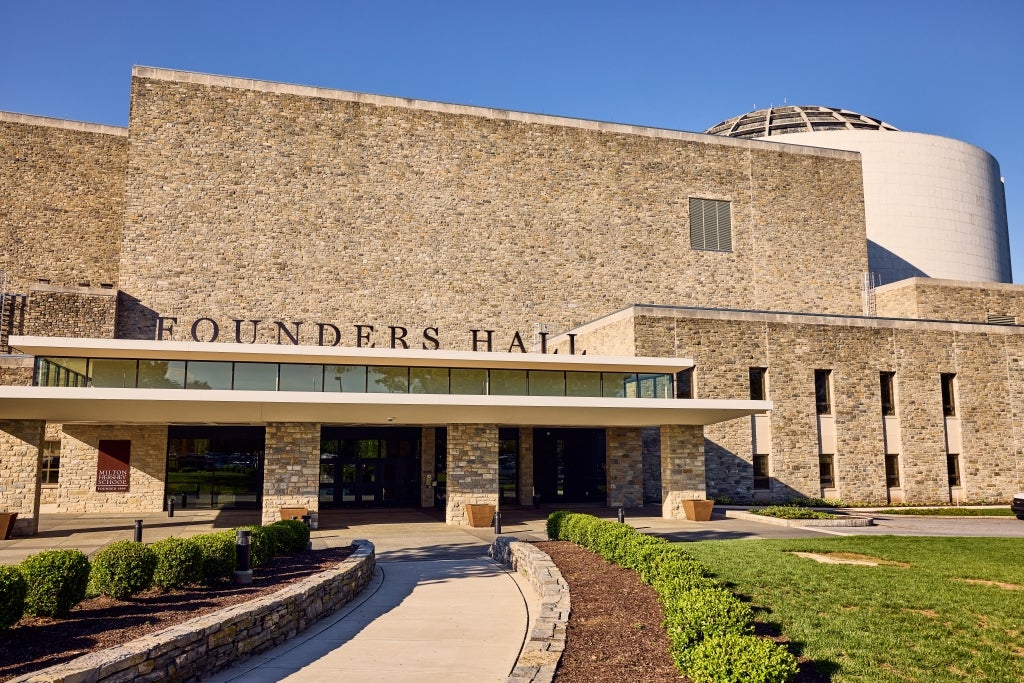
Since Milton Hershey School was established 116 years ago, countless students and educators have walked through the doors of Founders Hall. Photo by Chris Simpson.
The Agriculture and Environmental Education (AEE) program includes an Environmental Center, Animal Center, Horticultural Center and Ice Cream Center that provide one-of-a-kind opportunities to care for animals — including horses, cattle, goats, sheep, rabbits, reptiles and amphibians — as well as grow crops, tend orchards and learn about floriculture production.
In addition to classroom instruction, MHS offers extracurricular activities to help pre-K through 12th-grade students gain additional experiences in agriculture. These include horsemanship and soap-making clubs, growing succulents, making ice cream, internships and student work opportunities to continue building knowledge. Students can also join the school’s FFA chapter.
Interest in hands-on education and learning opportunities is widespread. Although MHS prioritizes students from surrounding counties and the state of Pennsylvania, students from as far as Alaska and Hawaii have studied at MHS.
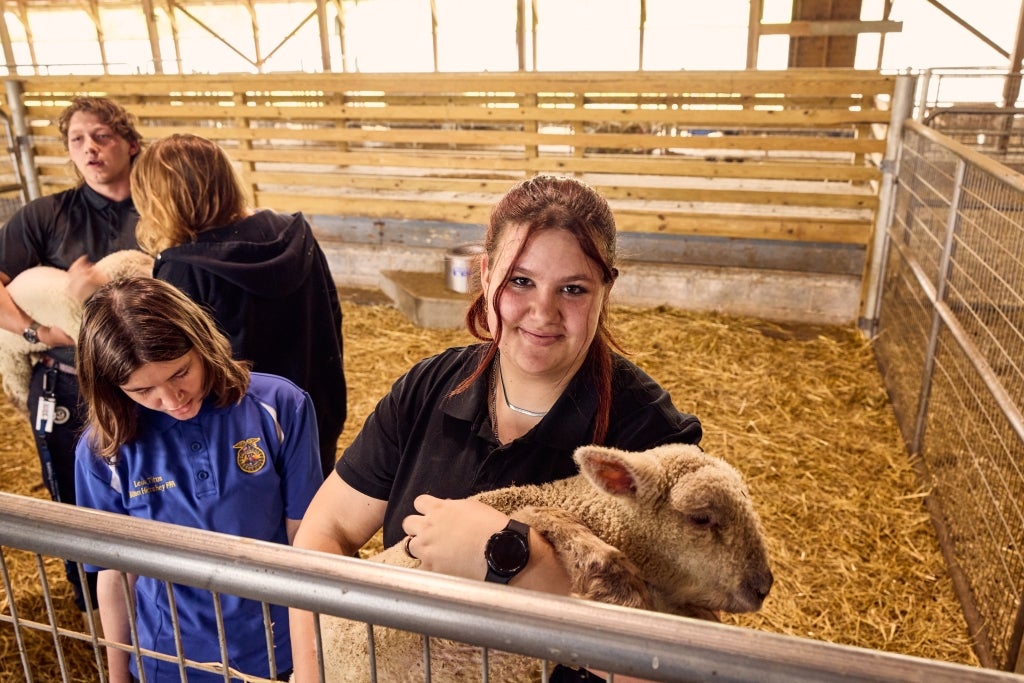
MHS student Harleigh Myers stops and smiles with one of the sheep being raised in her school’s Animal Center. Photo by Chris Simpson.
There were just two students in the AEE program when Nick Isenberg started teaching agricultural science at MHS 20 years ago. Now, 42 students are enrolled in the program. Isenberg believes the integration of Curriculum for Agricultural Science Education (CASE) courses designed to prepare students for college and career readiness, “have added rigor and relevance” that has helped build interest and engagement in the program.
Room to Grow
Kalena Williams-Ross is a senior at MHS and the MHS FFA Chapter’s treasurer. When she enrolled in the school in fifth grade, she was interested in animals, but had no previous interactions with cows, goats, sheep or other livestock. Now, she’s planning to enroll in the pre-vet program at Delaware Valley University.
“I was always interested in farm life, but I never had the opportunities before now,” says Williams-Ross. “When I visited here, I was just like, ‘Wow, what is this place? It’s a new world.’”
Keister also enrolled in the AEE program with a strong interest in agriculture. After graduation, he hopes to secure an internship with Dairy Leaders of Tomorrow.
“I’ve wanted to be a farmer my whole life,” he says. “When I came here [in ninth grade], I realized we have such a great opportunity. We can help with feeding, giving shots, learn about diseases … some days we do animal therapy, and we can come down here and spend the afternoon with the animals.”
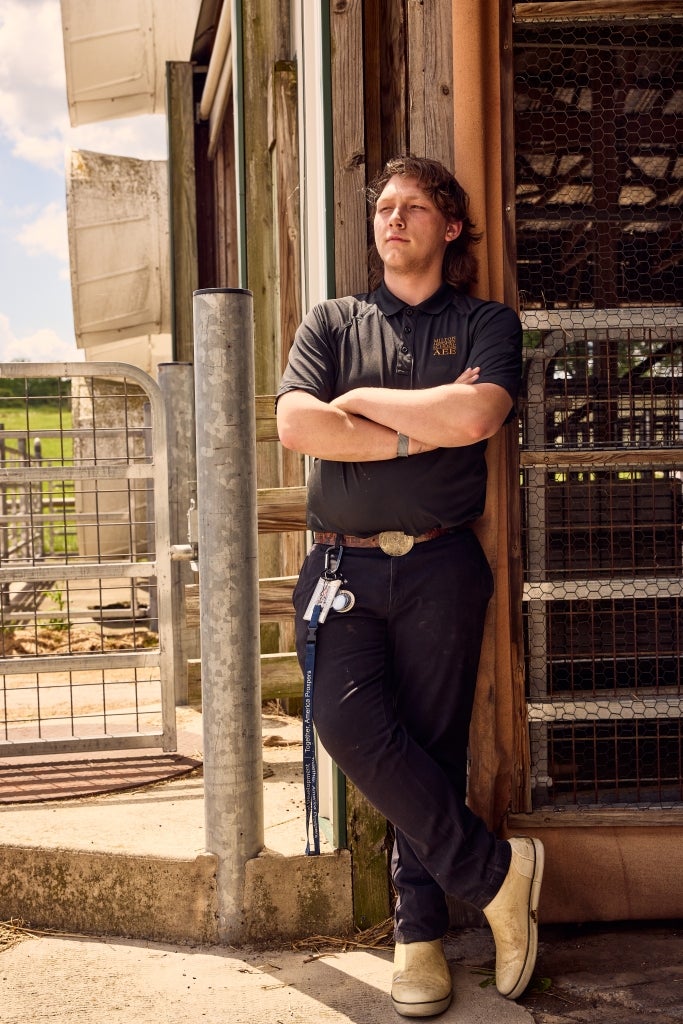
Logan Keister ponders the possibilities of what his future in agriculture could look like. Photo by Chris Simpson.
Participating in the MHS FFA Chapter also helped Keister expand his skills. “Going to different competitions and having an actual farm on campus where we have live animals that we can evaluate whenever we want gives us more of an advantage than other teams,” he says.
“I was talking to a couple members [at national FFA convention] and they said, ‘We don’t even get half the opportunities you guys do,’” Keister adds. “I didn’t realize how lucky we are at MHS, and most of that is due to Mr. Isenberg; he pushes us out of our comfort zone really well.”
Isenberg, who planned to work for the family dairy farm until his agriculture teacher encouraged him to pursue a career in agricultural education, appreciates the credit.
“It’s great having students who are willing to listen to me, take a chance and try different FFA activities and competitions,” he says. “When they come back, they always say, ‘That was a little nerve-racking, but I had fun.’ It happens every time.”
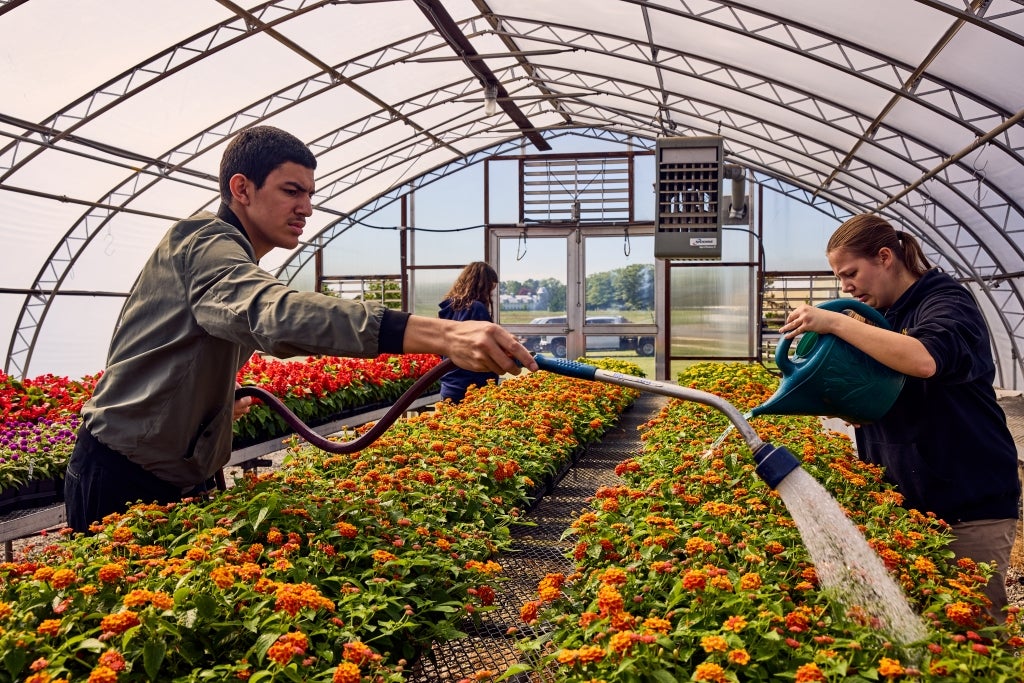
Jesse Boron (left) and Kourtney Daley (right) water flowers in the Horticultural Center. Photo by Chris Simpson.
Found Family
It’s not just the academic environment that makes MHS stand out. Students who attend live with “houseparents” in on-campus housing, and seniors move into apartment-style residences to learn the basics of budgeting and household management before graduation.
“We’re all on the same campus; we see each other 24/7,” Williams-Ross says. “We share the same buildings and we’re always in the student homes from freshman to junior year … and it allows us to share experiences. If you’re wary about the AEE program, you can ask people who have already gone through it, or who are going through it with you, and it makes me feel like I’m not as alone.”
This residential setting creates connectedness among students in different grades who live and work together, and it’s common for students in the agriculture program to turn to one another for advice and support when navigating life on campus.
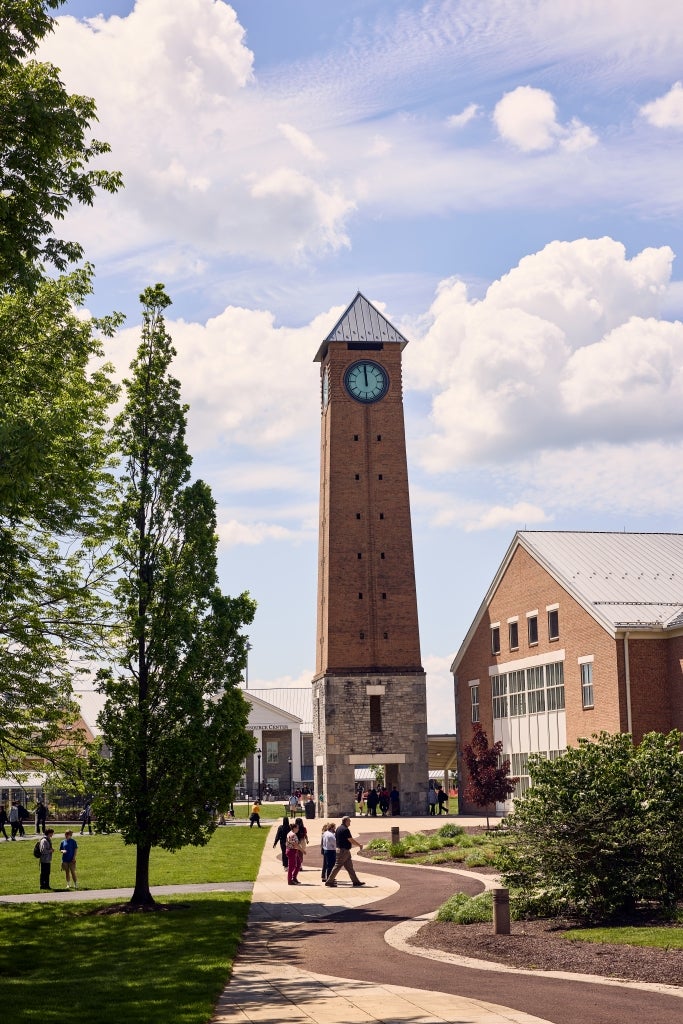
In addition to taking classes, Milton Hershey School students live and work on campus — a well-rounded experience that helps them gain real-world skills. Photo by Chris Simpson.
“Being in AEE creates a family dynamic,” says Edythe Rossman, an MHS senior and the MHS FFA Chapter’s vice president. “It’s very nice to have a group of people you can call your sisters and brothers. It’s given me so many opportunities, especially because I’m just shy and [working on] getting out of my comfort zone. Being in an area with lots of people, different stories and backgrounds and learning so many new things has been so good for me.”
In addition to providing top-notch education, hands-on learning and helping students build new relationships, the tight-knit campus and robust agriculture program also benefit the surrounding community. MHS hosts plant sales, petting zoos and open house events, and students sell produce grown on the farm in the MHS Project Market. They also run Spartan Ice Cream Center, a campus ice cream shop that’s a local favorite.
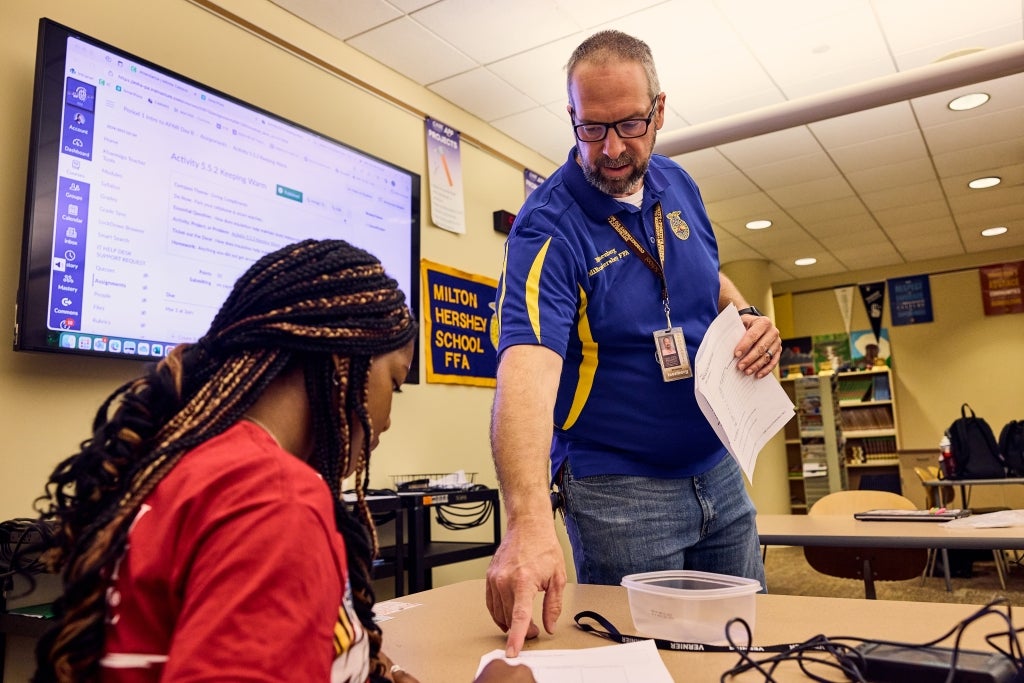
Nick Isenberg (right) leads Jaionna Lewis (left) through an interactive activity in class. Photo by Chris Simpson.
Rossman hopes inviting the community onto the MHS campus will help others understand the importance and benefits of agricultural education. “I wish people had a better understanding of what agriculture is and what it does for us,” she says. “There’s more to it than animals, mud and tractors, and I feel like that’s what people associate us with. So, I feel like if we could give them a better understanding, we could change that.”
Seeds of Knowledge
Learn more about enrolling at Milton Hershey School and careers available at the school.


